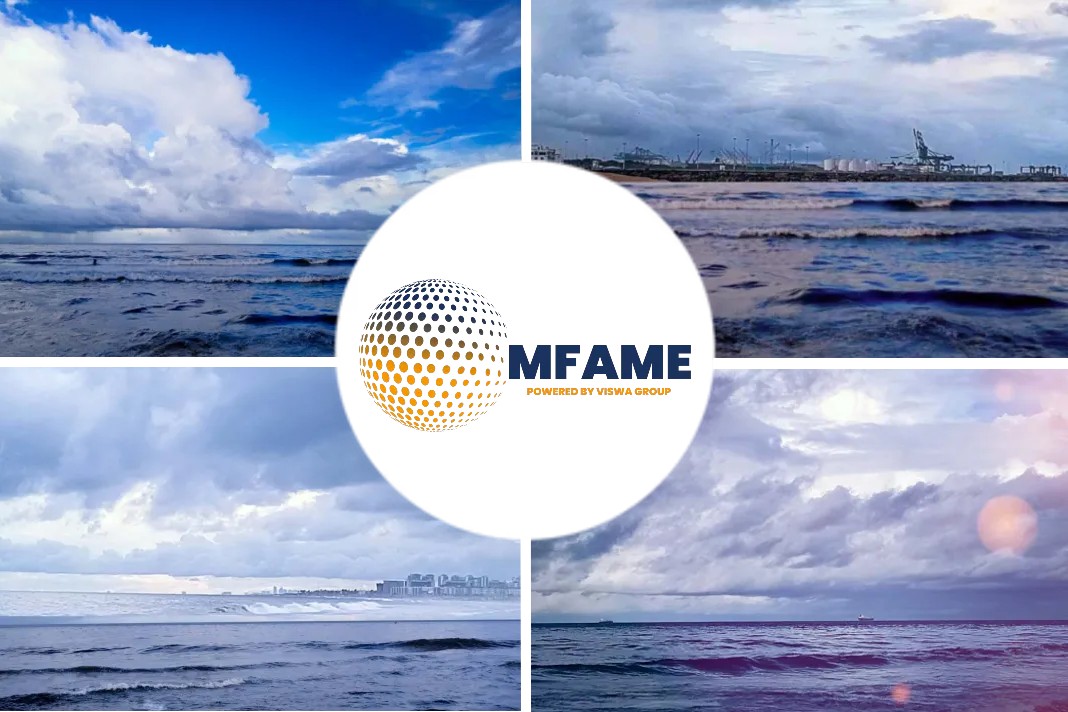
- These electric-hybrid bunker tankers are designed to significantly reduce carbon emissions in port locations and will be deployed for harbour operations within Singapore.
- The launch of these electric-hybrid bunker tankers is a significant milestone for V-Bunkers and demonstrates its commitment to sustainable shipping practices.
- The vessels were built by Zhejiang Shenzhou Sunshine Heavy Industry Co., Ltd. and were designed by a Singapore-based designer.
Vitol’s Singaporean bunker operations company, V-Bunkers, has today announced that they will be taking delivery of its first electric-hybrid bunker tanker, MARINE CHARGE. Classed by Bureau Veritas (BV), a world leader in testing, inspection and certification, the electric-hybrid bunker tanker features advanced energy storage and charging technologies that will help curb greenhouse gas emissions (GHG) from port operations in Singapore.
Electric-hybrid bunker tanker
V-Bunkers placed an order to build two of these cutting-edge vessels in 2021, with the second tanker, MARINE DYNAMO, scheduled for delivery in Q2 2023.
These electric-hybrid bunker tankers are designed to significantly reduce carbon emissions in port locations and will be deployed for harbour operations within Singapore.
The vessels were built by Zhejiang Shenzhou Sunshine Heavy Industry Co., Ltd. and were designed by a Singapore-based designer.
Energy storage system technology
The BV-classed bunker tankers are built with BV’s Electric-Hybrid notation and feature state-of-the-art Energy Storage Systems (ESS) technology, comprising Lithium-ion batteries and a highly automated Power Management System (PMS), to achieve an estimated 10% reduction in GHG emissions.
The design configuration enables the auxiliary engines to operate at the most optimal specific fuel oil consumption (SFOC), while the ESS performs peak shaving during low power consumption periods for usage of stored energy during high consumption periods.
The ESS has recharging capabilities, and while onshore power supply is currently unavailable, the bunker tankers are ready for when charging infrastructure and facilities become available in Singapore.
Complexity of electric hybrid system implementation
BV’s ‘Electric-Hybrid’ notation addresses the complexity of electric hybrid system implementation, defining requirements for storage, power distribution, control, and instrumentation, as well as tests that must be carried out to validate power management and critical safety considerations, such as thermal runaway.
Bureau Veritas is continuously working towards the development of a standardised safety framework for on-board batteries, which is crucial as the industry explores various options to achieve carbon-neutral shipping.
Reducing carbon emission
David Barrow, Vice-President South Asia and Pacific, Bureau Veritas Marine & Offshore, commented: “Bureau Veritas is committed to supporting the safe development and deployment of batteries within the maritime sector, and it is heartening to see the industry embrace sustainable solutions to reduce carbon emissions and improve energy efficiency.
V-Bunkers’ electric-hybrid bunker tankers are a positive step towards building a greener and more sustainable future for Singapore’s port operations.”
Sustainable shipping practices
The launch of these electric-hybrid bunker tankers is a significant milestone for V-Bunkers and demonstrates the company’s commitment to sustainable shipping practices.
By deploying these vessels in Singapore’s port, V-Bunkers aims to reduce carbon emissions and pave the way for a more sustainable future in the maritime industry.
Mike Muller, Head of Vitol Asia, said: “We are delighted to be the first to bring ESS technology to the local bunker craft sector and thus contribute to the reduction of emissions in the port of Singapore, the world’s largest bunkering port.
We shall continue to support Singapore’s aspirations, led by the Maritime Port Authority of Singapore, to be a leader in maritime decarbonisation.
We consider deployment of these two electric-hybrid bunker tankers to be an important step forward in Singapore’s decarbonisation journey.”
Did you subscribe to our Newsletter?
It’s Free! Click here to Subscribe.
Source: Tanker Operator
























